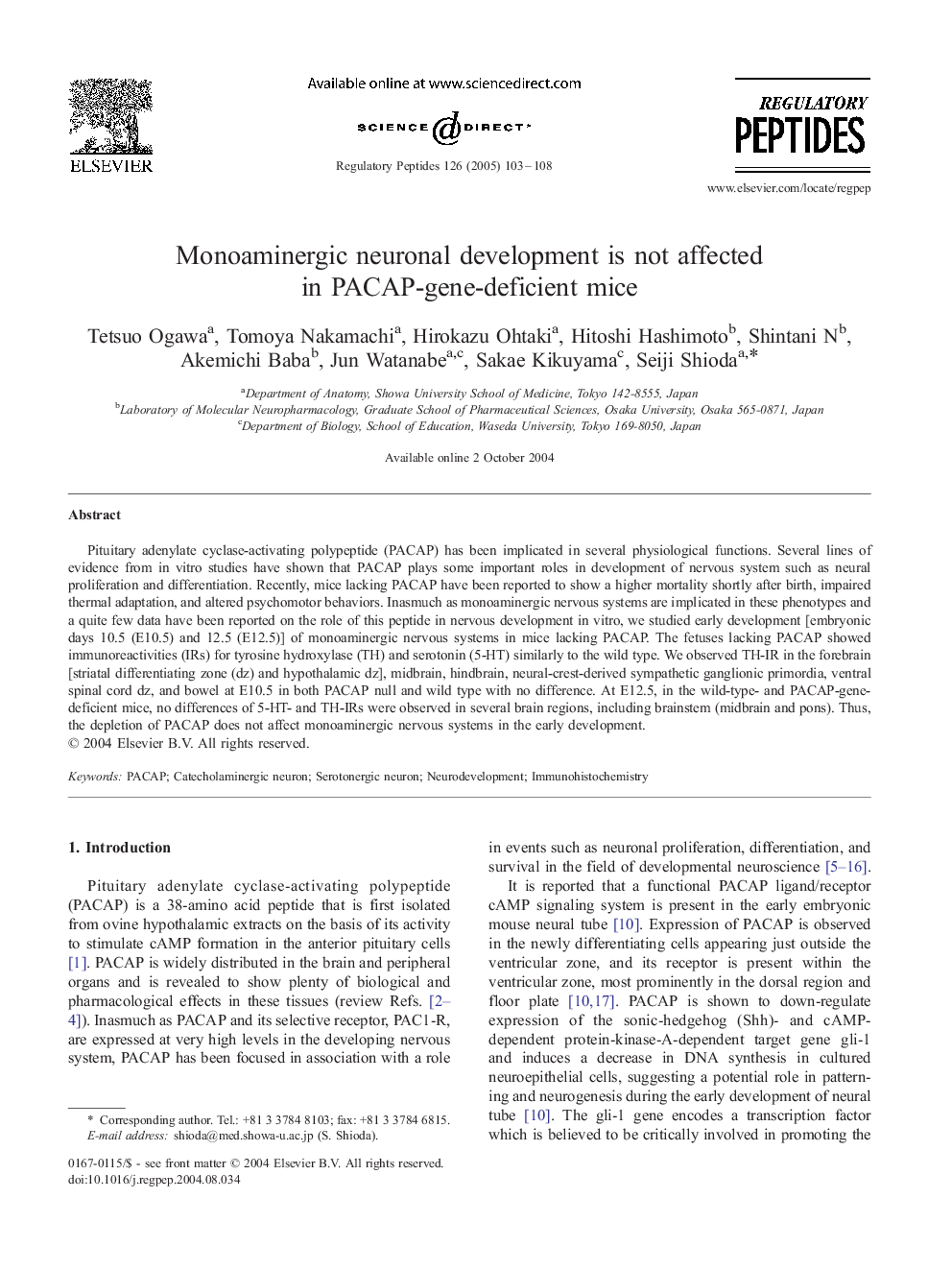| Article ID | Journal | Published Year | Pages | File Type |
|---|---|---|---|---|
| 9894486 | Regulatory Peptides | 2005 | 6 Pages |
Abstract
Pituitary adenylate cyclase-activating polypeptide (PACAP) has been implicated in several physiological functions. Several lines of evidence from in vitro studies have shown that PACAP plays some important roles in development of nervous system such as neural proliferation and differentiation. Recently, mice lacking PACAP have been reported to show a higher mortality shortly after birth, impaired thermal adaptation, and altered psychomotor behaviors. Inasmuch as monoaminergic nervous systems are implicated in these phenotypes and a quite few data have been reported on the role of this peptide in nervous development in vitro, we studied early development [embryonic days 10.5 (E10.5) and 12.5 (E12.5)] of monoaminergic nervous systems in mice lacking PACAP. The fetuses lacking PACAP showed immunoreactivities (IRs) for tyrosine hydroxylase (TH) and serotonin (5-HT) similarly to the wild type. We observed TH-IR in the forebrain [striatal differentiating zone (dz) and hypothalamic dz], midbrain, hindbrain, neural-crest-derived sympathetic ganglionic primordia, ventral spinal cord dz, and bowel at E10.5 in both PACAP null and wild type with no difference. At E12.5, in the wild-type- and PACAP-gene-deficient mice, no differences of 5-HT- and TH-IRs were observed in several brain regions, including brainstem (midbrain and pons). Thus, the depletion of PACAP does not affect monoaminergic nervous systems in the early development.
Related Topics
Life Sciences
Biochemistry, Genetics and Molecular Biology
Biochemistry
Authors
Tetsuo Ogawa, Tomoya Nakamachi, Hirokazu Ohtaki, Hitoshi Hashimoto, Shintani N, Akemichi Baba, Jun Watanabe, Sakae Kikuyama, Seiji Shioda,
